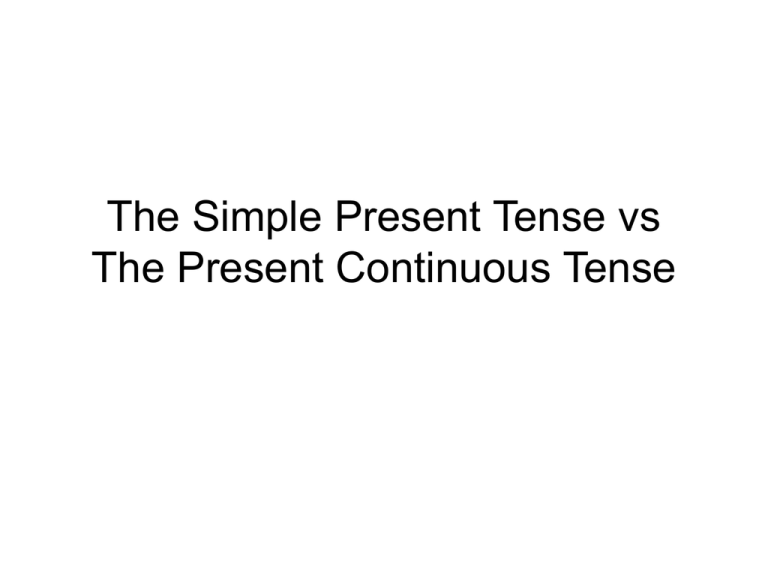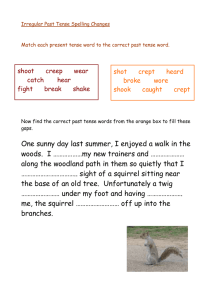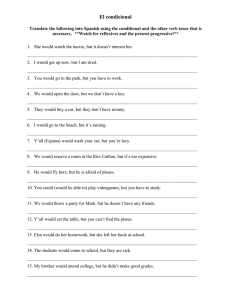The Simple Present Tense vs The Present Continuous Tense
advertisement

The Simple Present Tense vs The Present Continuous Tense The simple present tense • The simple present tense is used for two main types of action: • Habits: Actions which happen regularly (every day, every week, etc.) • States: Things which do not often change (opinions, conditions, etc.) Type of action: HABIT Examples: >Young-Mi goes to class every day. "Every day" is a habit. >It rains a lot in Vancouver. This means that it rains often. >Santos always talks about his family. "Always" means this is a habit. >Jerry spends Christmas with his parents. This implies that he spends Christmas with his parents every year. STATE • Bianca lives in Florida. This is a state, because it doesn't change. • Jean-Paul has red hair. Someone's hair colour doesn't usually change. • Martin likes chocolate. When we like something, usually we will always like it. • Anna believes in God. Beliefs and opinions are states. They don't often change. The Present Continuous Tense • A temporary action happening now: something which is going on right now (but it will stop in the future) • A definite plan for the future: something we intend to do, usually in the near future Temporary action happening right now • John is winning the game. Right now, John is winning, but the game isn't finished yet. • It's raining outside. It's raining right now (but it may stop soon). • Soraya's working in the library. She's working there right now. • Sihol is spending Christmas with his family. He's spending Christmas with his family right now, this year. (Maybe next year he won't.) Definite plan for the future • I'm playing soccer tomorrow. This plan is already arranged and definite. • Sarah's leaving for San Francisco on Friday. She has probably already bought her ticket. • The Olympics are taking place here next year. This is already certain. * I'm having a party next week. All the plans have been made. Simple Present or Present Continuous? • This is a café and you can see a couple. A man (sit) at a table with a woman but they (not, talk) to each other. They (come) here every day. He (usually, drink) coffee but today they (both, have) some wine. She (not, like) coffee.




